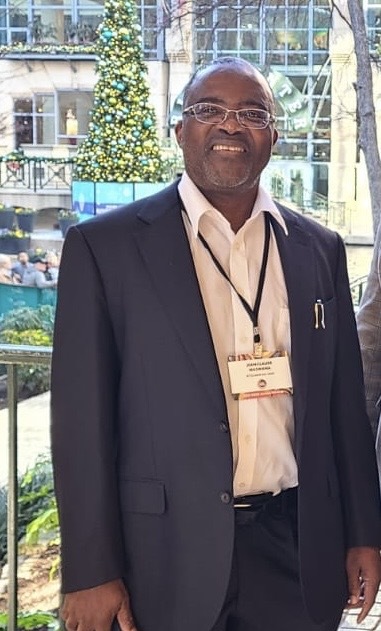Professor Jean-Claude Maswana, Ristumeikan University has shared his personal and professional journey with the audience at the 3rd IApF Africa-Japan University Exchange Meeting on the 16th February 2024.
Dr. Jean-Claude Maswana
Professor, Graduate of School of Economics
Ritsumeikan University
Summary of my talk at the Africa-Japan University Exchange Meeting
Good evening, and thank you to the organizers for inviting me to speak today. I arrived in Japan as a graduate student in 1998, deeply intrigued by the country’s financial system, especially the stock market’s connection to economic growth. At the time, Japan was experiencing economic decline following the burst of its economic bubble, a stark contrast to its earlier success as the only non-Western country to achieve significant industrial and economic development. As a young economist from the Democratic Republic of Congo (DRC), I was eager to understand how a nation that a model of success had once could find itself in such a precarious situation.
Upon my arrival in Japan, I was immediately confronted with numerous challenges, from navigating the language barrier to adapting to cultural differences. One of the most humbling experiences was seeing my name written in Katakana and not being able to recognize it. This made me acutely aware of what it feels like to be illiterate, despite being well-educated in my own country. This experience gave me a new perspective on the development challenges faced by those who are illiterate or undereducated, deepening my understanding of the issues I would later address in my work as an economist.
Resilience and adaptation became central themes in my life in Japan. For instance, I initially could not conceive or imagine anyway I could eat raw fish (e.g., sashimi), a staple of Japanese cuisine, but over time, I realized that adapting to the local culture, including its food, was essential for me as it means in order to fully embrace my new environment, worry less about foods; which means I can use my brain for more productive purposes. This adaptability helped me develop a flexible mindset, which proved invaluable in overcoming the various challenges I encountered in Japan.
Living in Japan also taught me that education extends far beyond the classroom. Every aspect of daily life, from learning to navigate the city to budgeting my scholarship funds, became a learning experience. These lessons in organization and discipline were crucial in both my personal and professional life and underscored the comprehensive nature of the education I received in Japan.
In conclusion, I encourage anyone considering studying in Japan to see it as a high-risk, high-reward opportunity. The challenges are significant, but the personal and professional growth you can achieve here is unparalleled. If you embrace the challenges, adapt to the new environment, and fully immerse yourself in the experience, Japan will provide you with the tools to succeed anywhere in the world.

